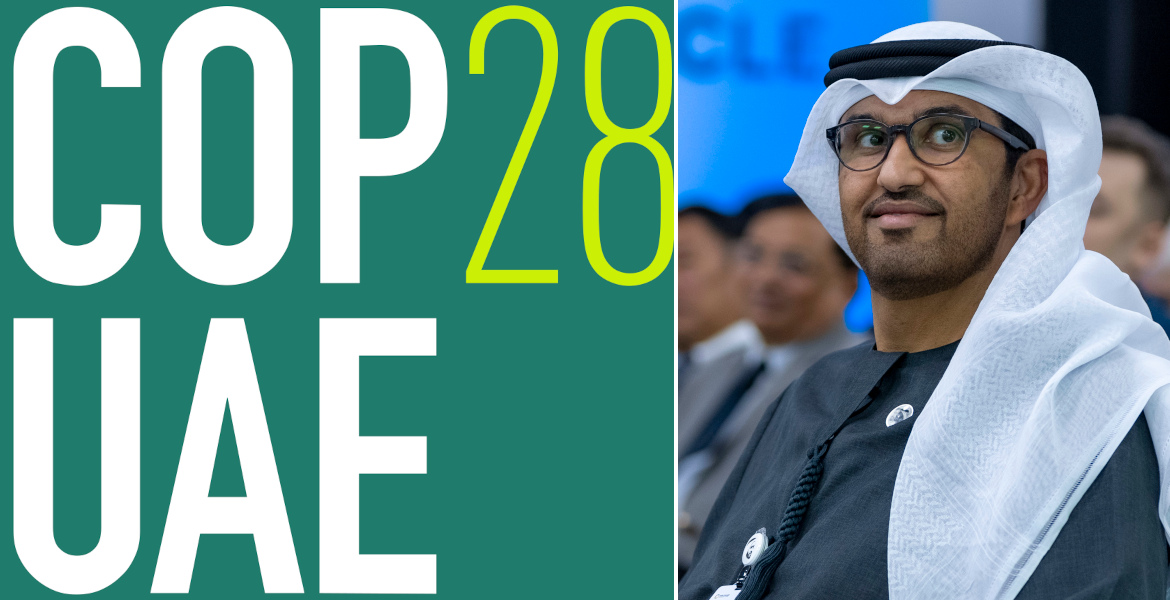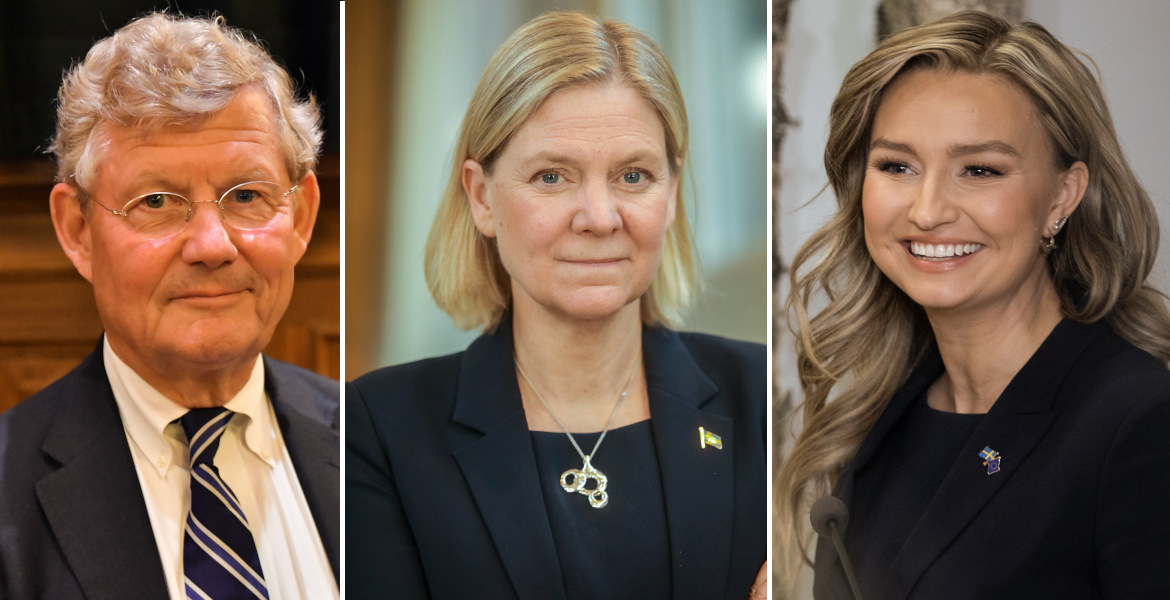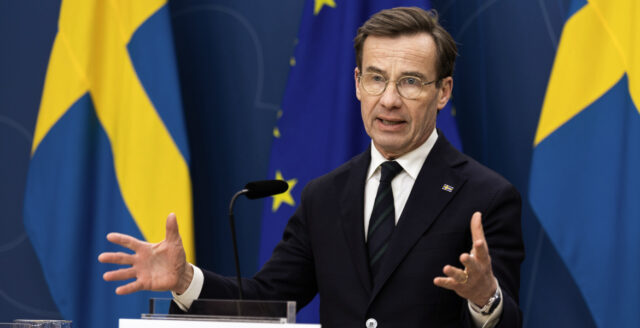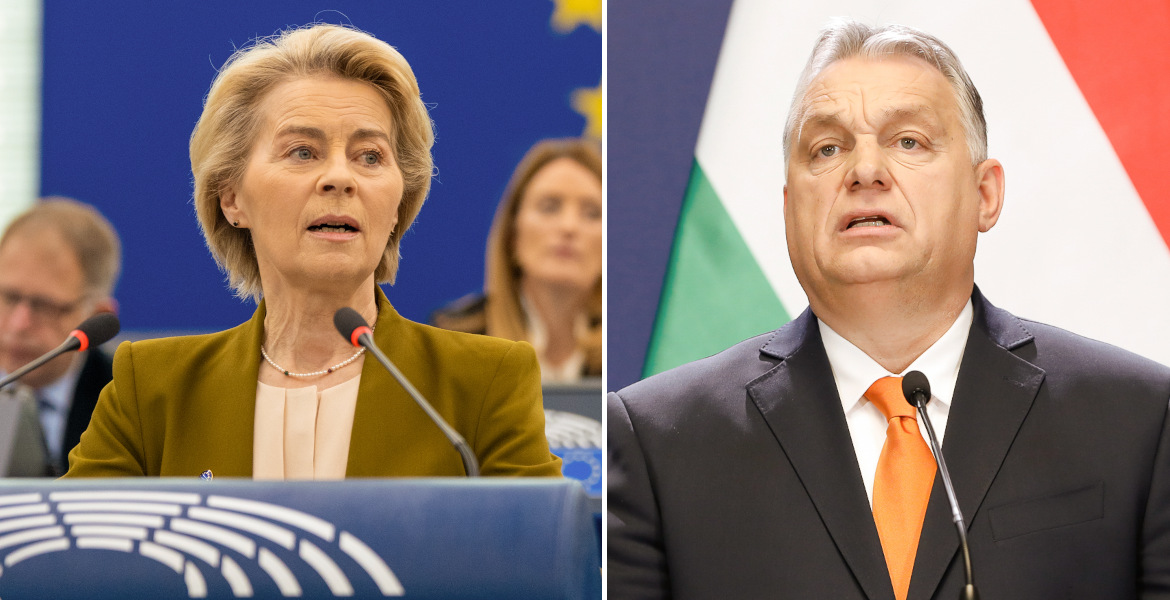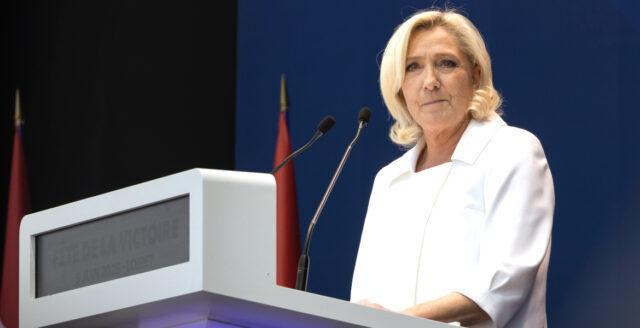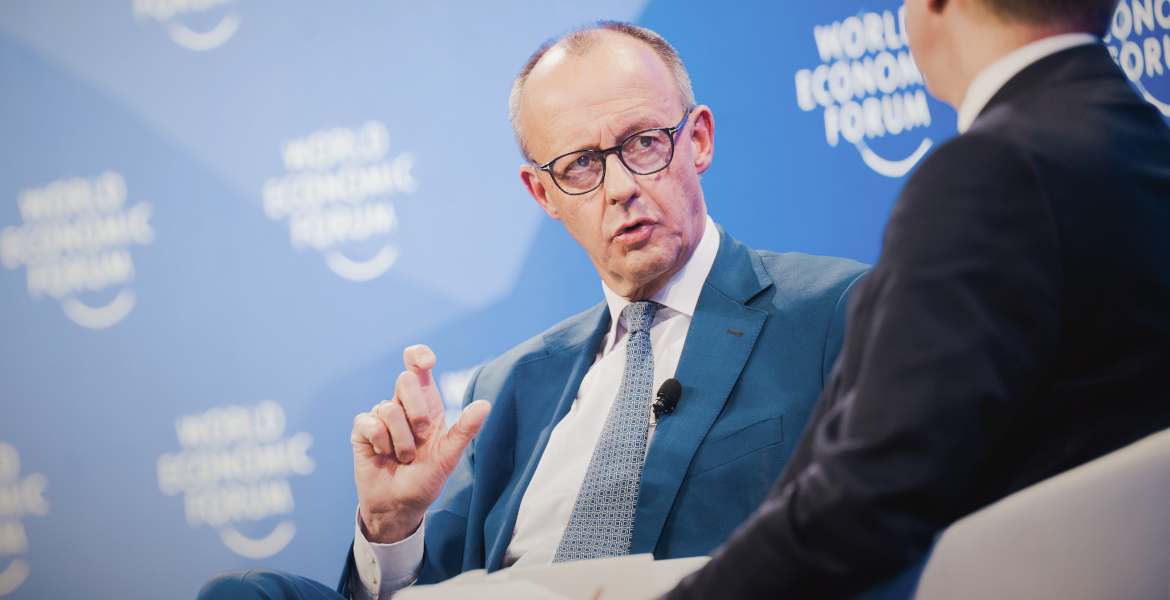A chairman described as a corrupt oil mogul, BlackRock and Rothschild executives serving as advisors, alarms over lobbyists and the fossil industry trying to influence decision-making and climate policy, along with demands for the populations of the Western world to reduce meat consumption. The UN climate summit, COP28, is marked by oddities and controversies.
The UN climate summit COP28 kicked off yesterday in the oil-rich United Arab Emirates. The conference’s official focus is primarily on “the global review of global climate work” and “the phasing out of fossil fuels”, with representatives from the Swedish government in attendance.
“The EU speaks with one voice in the climate negotiations. Sweden is part of the EU’s delegation and has negotiated a common line together with other member countries. This gives a clear mandate to push for an ambitious outcome from COP28 that covers the breadth of global climate work – emission reductions, adaptation, and financing”, the Swedish government states.
“On the agenda for the climate meeting is also climate financing, for example through aid funds, which is a central element in the implementation of the Paris Agreement. It should contribute to emission reductions and climate adaptation in developing countries, especially in vulnerable countries like the least developed countries and small island states. The donor countries recently confirmed that the goal of 100 billion USD per year in climate financing will be reached in 2023”, the government further announces.
Oil mogul as climate chairman
That the UN climate meeting is held in the United Arab Emirates, a significant oil producer, has sparked a lot of criticism among climate activists and organizations. Many worry that ‘fossil interests’ will play an even larger role this year than during COP27 in Egypt, where the fossil industry had over 600 representatives present.
Furthermore, the chairman of the summit is Sultan Al Jaber – who is simultaneously the industry minister and the head of the country’s state-owned oil company.
Al Jaber, who also has ties to the infamous globalist network World Economic Forum, has been accused on several occasions of attempting to ‘greenwash’ the United Arab Emirates and its oil industry and trying to present himself as an advocate of “climate-friendly” alternatives and “green energy” – while he is actually one of the fossil industry’s most powerful players.
Members of his staff have also been tasked with censoring and removing negative information about Al Jaber on the encyclopedia Wikipedia, and instead editing the articles and using biased sources, to make the oil mogul appear as something of a climate hero.
During #WEFMENA, HE Dr Sultan Al Jaber also met Professor Klaus Schwab, Founder and Executive Chairman of @WEF pic.twitter.com/fqfKvE4AHj
— Masdar (@Masdar) May 24, 2015
Reduced meat consumption on the agenda
A major focus of the conference is expected to be on discussing how to persuade political leaders to encourage and influence citizens to consume less meat.
“The global food systems’ road map to 1.5C is expected to be published by the United Nations’ Food & Agriculture Organization during the COP28 summit next month. Nations that over-consume meat will be advised to limit their intake, while developing countries – where under-consumption of meat adds to a prevalent nutrition challenge – will need to improve their livestock farming, according to the FAO”, Bloomberg reports.
It is particularly Europe and the USA that are urged to “dramatically reduce their meat consumption”, American media report.
– The failure of leading meat and dairy companies to reduce emissions underlines the urgent need for more policy focus on the food and agriculture sector,” Jeremy Coller, the chair and founder of the FAIRR Initiative, an investor network that works with financial institutions to promote climate-friendly agriculture worldwide, in a recent statement.
– Food system emissions deserve a place at the top of the table, alongside energy and transport, as they represent an estimated third of greenhouse gas emissions and 40% of methane, he continued.
Lab-grown meat will also be discussed in panel talks and seems to be promoted as something unequivocally positive.
“In this mini-panel discussion, we cut deep into cultured meats. Join industry leaders in the space as we discuss scalability, nutrition, affordability, environmental footprint and a host of other issues”, it is written among other things.
Lobbyist influence
Another concern is how companies, think tanks, lobbyists, and industry organizations might use the climate meeting to influence decision-makers and the issues to be addressed. Adrienne Sörbom, a professor at SCORE (Stockholm Centre for Organizational Research), is on site to study just this.
– My interest is to understand how organizations such as think tanks, companies, private research institutes, and others try to influence negotiations at a COP event.
Together with colleagues, she wants to “illuminate the role” these actors play in shaping global climate policy.
‘We know from previous research that these types of organizations that want to influence politics in the background are active in global political decision-making
– We believe that the same type of activities is also ongoing in terms of climate. We can see from previous participant lists that these organizations are there.
– We believe, based on previous research, that they will try to be what we call ‘private diplomats’… This means that they will try to act as ambassadors for certain problems and solutions. They will also be there as private organizers of discreet meetings in the background, she continues.
Opportunity to sell oil
Furthermore, it is reported that the host country – the United Arab Emirates, has planned to use gatherings and meetings just before the official COP28 event to conduct gas and oil deals with representatives of foreign governments.
”More than 150 pages of prepared briefings for meetings held by Sultan Ahmed al Jaber, COP28 president, earlier this year, reportedly show conversations about opportunities to increase exports”, writes Sky News, referring to the Centre for Climate Reporting.
The chairman Ahmed al Jaber, who is also the CEO of Abu Dhabi’s national oil company Adnoc, is said to have planned to “discuss commercial interests with almost 30 countries ahead of the summit”.
– The UN Climate Summit is supposed to be a space where the world holds polluters to account, but increasingly it’s being hijacked by those with opposing interests, argues Teresa Anderson from the charity organization ActionAid.
BlackRock and Rothschild
Looking at COP28’s advisory committee, some familiar names appear – including Larry Fink, CEO of perhaps the world’s most powerful and infamous investment company, BlackRock, and Sir John Rose, vice chairman of the Rothschild Group.

The Rockefeller Foundation, ahead of the summit, has announced its aim to become “emission-neutral” and that it has invested about 6 billion dollars in initiatives for reduced emissions.
“The Rockefeller Foundation aims to contribute to the global decarbonization effort, accelerating the work needed to meet the goals of the 2015 Paris Agreement. Along with regular reporting of progress, The Rockefeller Foundation will also convene investors, peers, and experts to advance broader collaboration towards net zero, with the first event to take place in early 2024”, the foundation writes.
Among the event’s sponsors are also, among others, Bank of America and Dubai Islamic Bank. COP28 is scheduled between November 30 and December 12.
